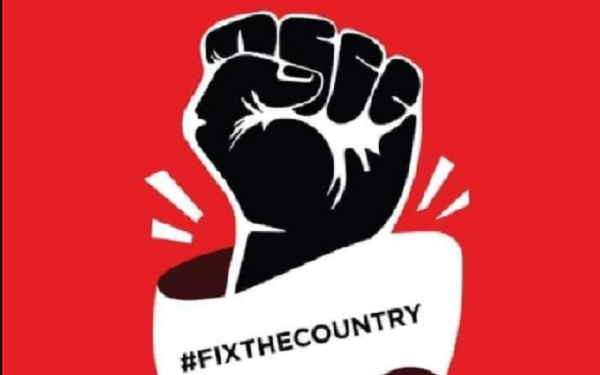The organizers of the social media movement #FixTheCountry claim the aim of their initiative to solve current issues in the nation is to instill a culture of protest among the citizenry.
One of the campaign’s leaders, Oliver Barker-Vormavor, believes that Ghanaians can not only accept that the democratic structure has disappointed them, but also use fair power to claim what they need to change their living conditions.
“One of the most important things we want to do is to institutionalize protest culture in this country.” When democracy is established, we anticipate that those state structures will hold the key to reining in bureaucratic excesses,” Mr. Barker-Vormavor said on The Point of View on Monday night.
“However, all those have been eroded and diminished over time, and for the first time, we are seeing people that are emerging from beyond those social frameworks and attempting to keep those structures accountable. “We must institutionalize the Ghanaian sense and render protest sexy,” he said emphatically.
The campaigners also generally bemoaned the country’s insufficient or non-existent services, deplorable facilities, weak sanitary standards, an accommodation deficit followed by exorbitant rent, a general high cost of living, and high rate of unemployment with its attendant problems.
They also voiced frustration on Twitter and other social media outlets over economic poverty and the degree of underdevelopment brought about by successive governments.
Some representatives of the public criticized the rally because of the call’s focus and direction.
However, the group’s determination to demonstrate and put pressure on the government to fix the country has been rife with difficulties, including the police’s failure to give them permission to hold their demonstration.
While some government officials have voiced the state’s dedication to meeting the campaigners’ demands, some think the President, Nana Akufo-Addo, must speak out on the group’s concerns.
Read Also: Nigeria searches for 90 travellers over Covid breach
Mr. Barker-Vormavor echoed the sentiments of his representatives, stating that only a genuine and reconciliatory response would restore the confidence of many disillusioned Ghanaians in government and state institutions.
“Systemic problems have resulted in the loss of life. We ought to have Ghanaians on TV to talk about how the scheme has impacted them, what they’ve missed, and how much the healthcare system has cost them. We need to move through it as a national healing process.”
“This is one of the items we believe is necessary to drive the dialogue forward,” he emphasized.
SOURCE: ATLFMONLINE

























